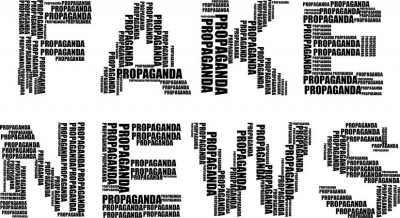Fake news reminders may increase your recall of facts
By IANS | Published: October 17, 2020 06:16 PM2020-10-17T18:16:03+5:302020-10-17T18:30:14+5:30
New York, Oct 17 If someone reminds you of a piece of fake news that you had read ...

Fake news reminders may increase your recall of facts
New York, Oct 17 If someone reminds you of a piece of fake news that you had read in the past, it may help increase awareness of discrepancies and promote memory updating, says a new study.
Past research highlights one insidious side of fake news: The more you encounter the same misinformation for instance, that world governments are covering up the existence of flying saucers the more familiar and potentially believable that false information becomes.
The new study published in the journal Psychological Science, however, has found that reminders of past misinformation can help protect against remembering misinformation as true while improving recollection of real-world events and information.
"Reminding people of previous encounters with fake news can improve memory and beliefs for facts that correct misinformation," said lead author on the paper Christopher Wahlheim, Assistant Professor at the University of North Carolina, Greensboro, US.
"This suggests that pointing out conflicting information could improve the comprehension of truth in some situations."
Wahlheim and colleagues conducted two experiments examining whether reminders of misinformation could improve memory for and beliefs in corrections.
Study results showed that misinformation reminders increased the participants' recall of facts and belief accuracy.
The researchers interpreted the results to indicate that misinformation reminders raise awareness of discrepancies and promote memory updating.
These results may be pertinent to individuals who confront misinformation frequently.
"It suggests that there may be benefits to learning how someone was being misleading. This knowledge may inform strategies that people use to counteract high exposure to misinformation spread for political gain," Wahlheim said.
( With inputs from IANS )
Disclaimer: This post has been auto-published from an agency feed without any modifications to the text and has not been reviewed by an editor
Open in app